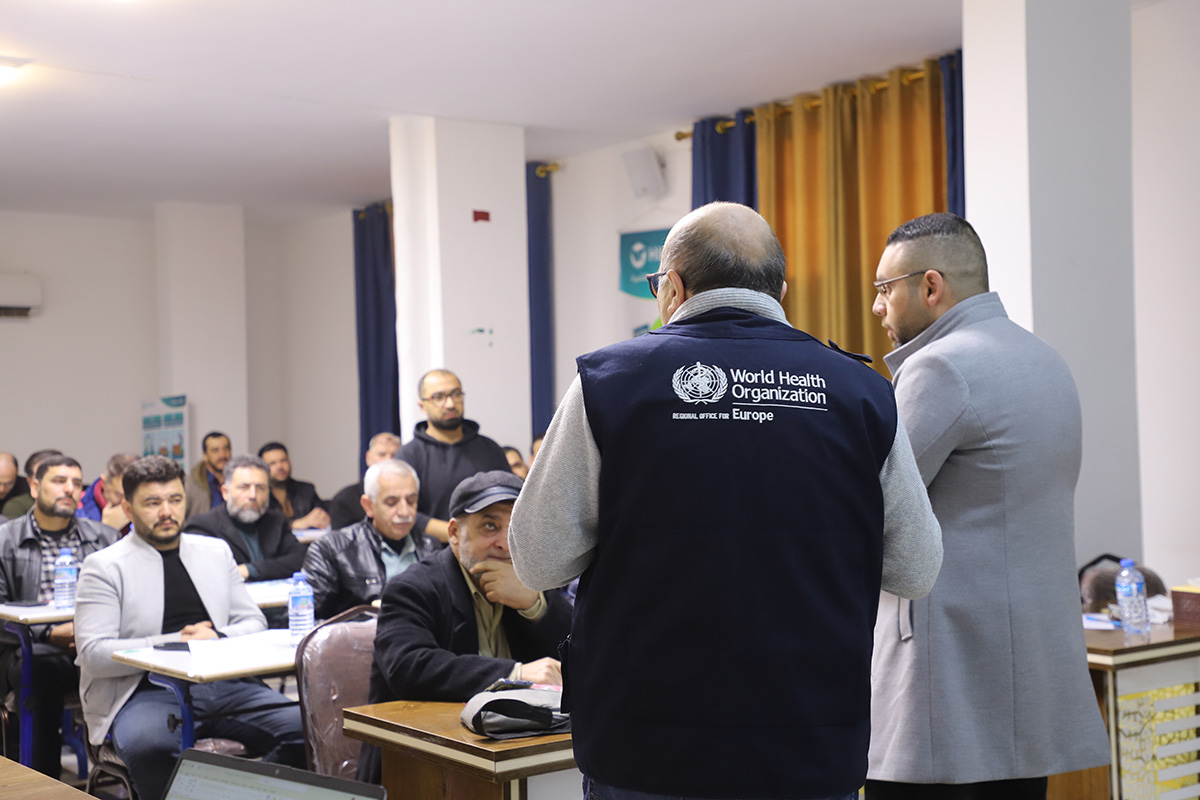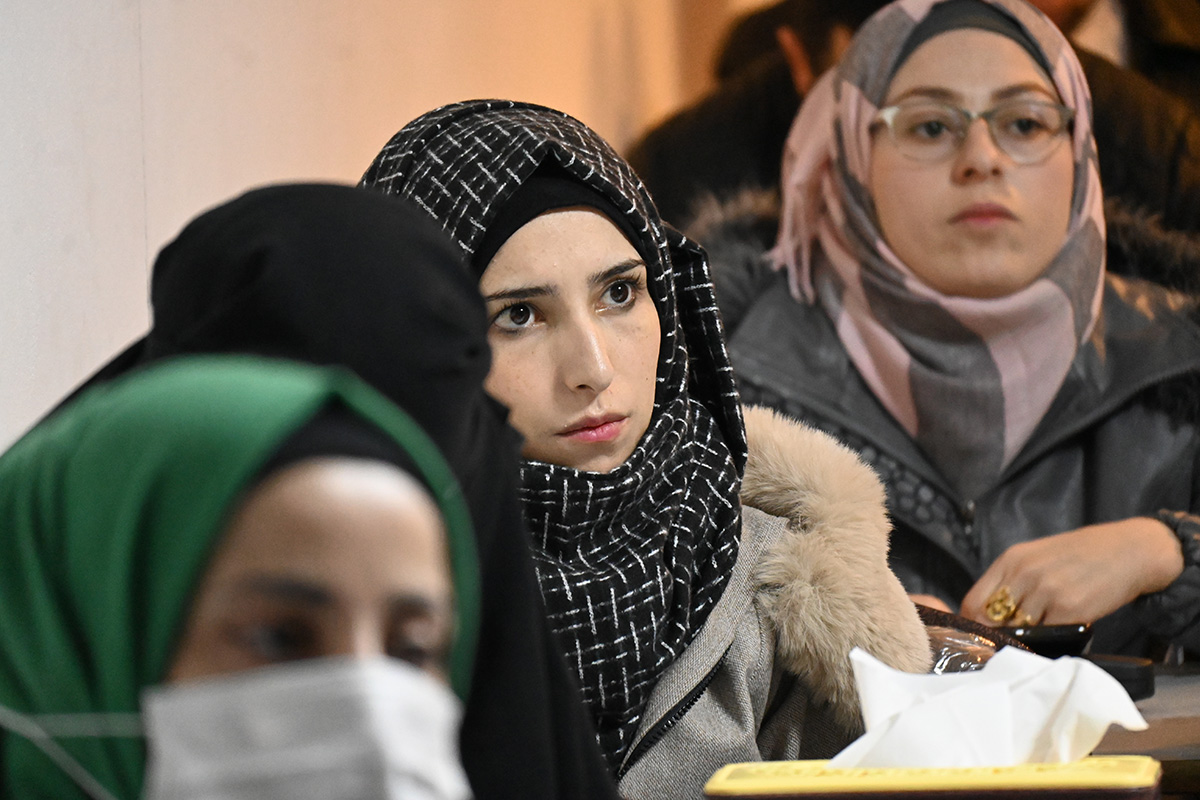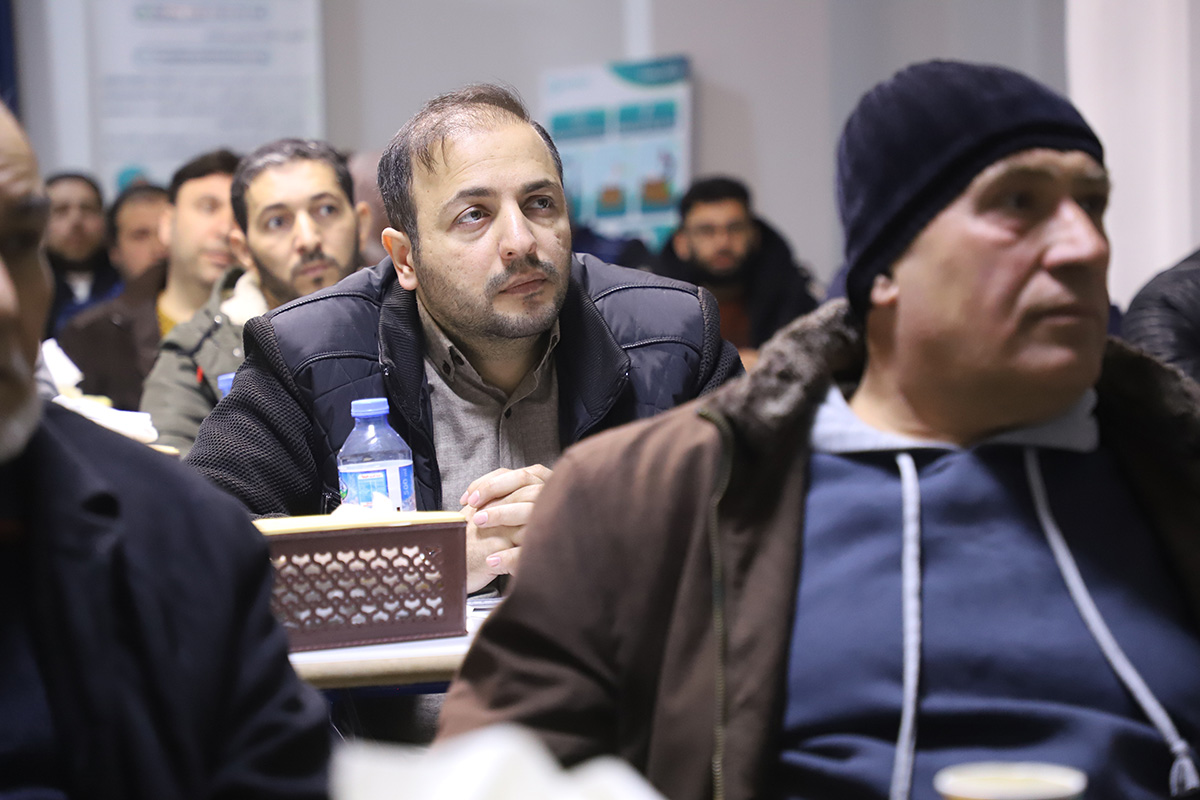 Dr Dato Chorgoliani, Tuberculosis Specialist, leads the training alongside Dr Mohammed Zeidan in Idlib. Photo: WHO/Mrinalini SanthanamSunday, 26 January 2025 – At Kafr Arouk Health Centre in northern Aleppo, a 6-year-old boy arrived severely malnourished and struggling to breathe – his condition worsened by months of delayed care. Paediatrician Dr Bayan Mohammed Hamidi remembers the case vividly.
Dr Dato Chorgoliani, Tuberculosis Specialist, leads the training alongside Dr Mohammed Zeidan in Idlib. Photo: WHO/Mrinalini SanthanamSunday, 26 January 2025 – At Kafr Arouk Health Centre in northern Aleppo, a 6-year-old boy arrived severely malnourished and struggling to breathe – his condition worsened by months of delayed care. Paediatrician Dr Bayan Mohammed Hamidi remembers the case vividly.
Dr Hamidi is one of 150 health care professionals trained by WHO, with support from the Global Fund to Fight AIDS, Tuberculosis and Malaria, to strengthen tuberculosis detection, treatment and community awareness across Aleppo and Idlib in northwest Syria. Held just days before the 8 December 2024 political shift, the training’s significance has grown as these regions transition into a new phase of governance within Syria.
“The training has shown me how important it is to recognize tuberculosis symptoms early and act quickly,” Dr Hamidi says. “Now I can guide families and ensure patients get the care they need without delay.”
In many parts of northwest Syria, stigma and misinformation often prevent people from seeking care. The training emphasized the importance of effective communication.
“We learned how to talk to families in a way that builds trust and encourages them to seek care early,” Dr Hamidi adds. “This is especially important where reliable health information is limited.”
 Women doctors actively listen and participate in the tuberculosis training session in Idlib. Photo: WHO/Mrinalini SanthanamPrimary health care centres were a critical focus of the training, as they are often the first point of contact for families in underserved areas.
Women doctors actively listen and participate in the tuberculosis training session in Idlib. Photo: WHO/Mrinalini SanthanamPrimary health care centres were a critical focus of the training, as they are often the first point of contact for families in underserved areas.
“Many families cannot afford the cost or time to travel long distances to specialized hospitals,” says Dr Jihad Al-Wahoub, a paediatric resident at Haritan Hospital for Women and Children in northern Idlib, who also participated in the training. “By raising awareness within primary health care centres, we can bridge the gap and identify tuberculosis cases earlier.”
The training covered topics, including diagnosing tuberculosis, managing extra-pulmonary cases and applying infection control measures such as administrative protocols and personal protection. Participants also learned how to strengthen connections between health care centres and tuberculosis centres to ensure timely referrals.
Since the start of WHO’s tuberculosis project in July 2019, over 2500 patients have been diagnosed in northwest Syria, including 47 with drug-resistant tuberculosis. In 2024, more than 460 patients were diagnosed.
Globally, without treatment, tuberculosis has a death rate close to 50%. However, WHO-recommended treatment regimens can cure 85% of cases.
 Participants engage in case studies, role-playing and group discussions designed to encourage active participation and critical thinking. Photo: WHO/Mrinalini Santhanam“These treatments are lifesaving for patients who often come to us in advanced stages of the disease,” says Dr Hassan Ibrahim, who coordinates the tuberculosis centres in Azaz and Al-Bab. “Our focus is on ensuring they receive care as soon as possible to prevent further spread.”
Participants engage in case studies, role-playing and group discussions designed to encourage active participation and critical thinking. Photo: WHO/Mrinalini Santhanam“These treatments are lifesaving for patients who often come to us in advanced stages of the disease,” says Dr Hassan Ibrahim, who coordinates the tuberculosis centres in Azaz and Al-Bab. “Our focus is on ensuring they receive care as soon as possible to prevent further spread.”
Northwest Syria has long relied on just four tuberculosis centres supported by limited staff, with two coordinators – Dr Ibrahim overseeing those in Azaz and Al-Bab, and Dr Mohammed Zeidan managing the Afrin and Idlib centres. WHO continues to fund these centres, ensuring uninterrupted care for vulnerable communities.
“When we speak to health care workers after the training, it’s clear they are applying what they’ve learned – strengthening referral pathways, diagnosing cases earlier and educating families,” says Dr Zeidan. “Their commitment gives me hope for the future of Syria’s health care.”
WHO’s plans for 2025 include maintaining support for tuberculosis centres, sustaining diagnostic and treatment services and collaborating with the new Ministry of Health to strengthen Syria’s health care systems.


